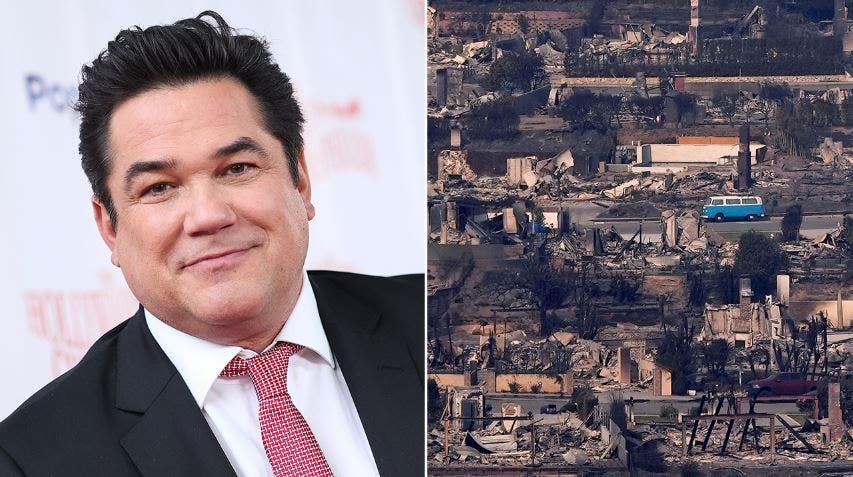Since the outbreak of protests in Kazakhstan and the developments that followed, it seems that both Turkey and Russia adopt the same position on the crisis, which is the need to restore stability in the country under the rule of President Kassym-Jomart Tokayev. However, a deeper look into the reality of positions and roles says that they are in a state of intense competition in This crisis, even if the growing Russian role in the crisis by sending troops to Kazakhstan is, from some angle, at the expense of Turkey’s role and interests.
The Turkish-Russian rapprochement remains more tactical than strategic, and is motivated by Turkey’s traditional allies’ neglect of its national interests and security, as well as its quest to avoid a clash with Russia, which has become “besieging” it from several sides due to the developments of the past years, especially its direct military intervention in Syria since September 2015.
Turkey and Russia
Recently, Turkish-Russian relations are among the thorny and problematic files for many observers, and inaccurate assessments revolve around them, driven by the impressions generated by successive developments in the past few years, in which Ankara seemed closer to its historical opponent, Moscow, than its traditional ally, Washington.
The two sides have significantly developed their political and economic relations during the era of justice and development, especially in the last few years after the crisis of the downing of the Russian fighter in Turkish airspace (autumn 2015). Their relations have reached strategic areas, such as qualitative arms deals such as the S-400 missile defense system, and giant energy projects such as the Akkuyu nuclear reactor and the Blue Stream natural gas project.
The two sides also concluded bilateral and collective understandings that spared them clash in a number of conflicts and enabled them to manage the dispute between them until this moment, such as Syria, Libya and the Caucasus. Added to all this is the noticeable tension in Turkey’s relations with its Western allies, led by the United States of America, which prompted some to talk about Turkey’s “going towards the east” and its “alliance” with Russia and the breach of its Western alliances.
However, this assessment is inaccurate, exaggerated, and somewhat hasty in view of the current data, and the point is that there is a fundamental change in the system of Turkey’s relations with the great powers, driven on the one hand by the end of the Cold War and the state of fluidity prevailing in the global system since that time and its instability in any case. On the other hand, Ankara changes its view of itself, its position, its interests, its power, and the roles it can play. Consequently, it sought some relative independence in its foreign policy.
Therefore, the Turkish-Russian rapprochement remains more tactical than strategic, and motivated by Turkey’s traditional allies’ neglect of its national interests and security, as well as its quest to avoid a clash with Russia, which has become “besieging” it from several sides due to the developments of the past years, especially its direct military intervention in Syria since September 2015. .
In addition to the historical conflict and traditional differences between the two sides, and the geopolitical realities that contribute to it, they have different, competing, and sometimes contradictory and clashing visions on most issues of common interest from Syria to Libya, from the Caucasus to Ukraine and Crimea, and from the Balkans to Asia Central, and from the Black Sea to the Eastern Mediterranean.
It can be said that the recent crisis in Kazakhstan is an additional example of the state of difference and competition between the two countries, even if the opposite appears in official statements and declared positions.
frenzied rivalry
Since the protests erupted in Kazakhstan at the beginning of this year, there are two main narratives competing to explain the event: The first is that it is demonstrations of demands – economic and political – by the people in the face of a regime usually described as tyrannical. Former President Nursultan Nazarbayev remained in power for nearly 3 decades before leaving The position is for one of his men, nominally only according to many. The second is that it is a fabricated crisis by the United States and the West in the face of Russia on the sidelines of the Ukrainian crisis recently. Thus, it is a repeated scenario of “color revolutions” and an attempt to “harass” Moscow in its strategic depth and to bring in regimes and governments farther from it and closer to Washington.
It is most likely that the two narratives have some relevance, and that the truth is a mixture of this and that, albeit to different degrees. But there is a missing element present in this assessment, which is Turkey’s relationship with developments, or more precisely the relationship of developments – especially the Russian intervention – with Turkey.
This is because Central Asia – especially the Turkish republics that were established after the collapse of the Soviet Union – is one of the most important areas of competition between Russia and Turkey, which the latter manages on its own behalf and partly on behalf of the Western bloc, as these republics consist of Turkish (and Muslim) ethnic majorities and Russian minorities, Most of them are governed by pro-Moscow regimes.
Ankara’s interest in these republics began since the collapse of the Soviet Union, and former Turkish President Turgut Ozal spoke of the borders of “the Turkish world from the Adriatic to the China Sea.” In 2009, Turkey established the “Turkish Council”, which brought together the Turkish-speaking countries, namely Turkey, Azerbaijan, Kazakhstan, Kyrgyzstan and Uzbekistan, in addition to Hungary as an observer. It is the council that Turkish President Recep Tayyip Erdogan announced last November only its transformation into the Organization of Turkish States, which seeks to deepen and develop cooperation in the “Turkish world,” stressing that its leaders agreed to the document “Turkish World Vision 2040” as a future perspective for the organization.
In the official declared positions, both Moscow and Ankara support stability in Kazakhstan, call for calm and declare their support for Kazakhstan and their confidence that calm will return soon, and the formation of a new government as soon as possible, but this does not mean that the position of the two sides is the same.
Moscow is closer to adopting the narrative of the regime, which spoke of “gangs trained abroad”, “terrorist elements” and “sabotage projects”. Therefore, the statement mentioned the Collective Security Treaty Organization (an organization founded in the 1990s with Russian leadership, and which included countries that were part of the Soviet Union). Among them is Kazakhstan) the presence of “foreign hands” fueling unrest in the country through “formations of guerrillas trained abroad”.
On the other hand, Ankara did not express explicit support for the regime or the president, but for Kazakhstan as a state and people. In its official statements, it did not neglect to refer to popular demands; During his call with Tokayev, Erdogan expressed his “hope to form a new government… and to end the tension as soon as possible.” While the Turkish Foreign Ministry’s statement hoped to “ensure the security and well-being of the brotherly Kazakh people,” and expressed “confidence in the Kazakh people.”
While Turkish presidential spokesman Ibrahim Kalin said that his country will “always stand by Kazakhstan,” Foreign Minister Mevlut Cavusoglu stressed that the member states of the Organization of Turkish States are ready to provide all forms of support “to bring stability and peace” to the country. Turkish Parliament Speaker Mustafa Sentop also expressed his confidence that “Kazakhstan, a country and a people, will overcome these difficult days by showing wisdom.”
Reading the rapid, strong and effective Russian intervention, under the umbrella of the Collective Security Treaty Organization, sending thousands of soldiers in a short period to Kazakhstan as a quick action to prevent the deterioration of events, and pulling the rug out from under the United States of America – correct but not complete; It (intervention) also anticipates the Turkish role that sought to communicate with the Kazakh president, as well as the member states of the newly announced Organization of Turkish States, as mentioned previously. Perhaps the announcement of a summit of the Collective Security Treaty Organization one day before the announced summit of the Organization of Turkish States on January 11, is a sufficient indication of this implicit and undeclared dimension.
Accordingly, in conclusion, the crisis in Kazakhstan is an addition to the contentious or minimally competitive files between Ankara and Moscow, which have recently managed their differences in a way that resembles a game of chess and without the need for direct confrontation. The end of the recent military confrontation between Azerbaijan and Armenia was a symbolic gain for Turkey, but Russia deployed its forces on Azerbaijani soil. Before that, Ankara turned the equation in Libya by supporting the Al-Wefaq government, but Moscow stopped the latter’s forces at Sirte.
Perhaps it is useful to point out that Turkish-Russian relations are not at the same level as the previous warmth, as the pace and intimacy of meetings and contacts between Erdogan and Putin declined in 2021, and messages exchanged between them recently in the Balkans, and signs of a new dispute appeared in the Syrian file after the last Astana meeting, and American pressure continues. Turkey regarding the S-400 system.
The two countries will not rush into a direct or indirect confrontation, according to our reading of the data, as they are accustomed to overcoming that possibility through several mechanisms, but the contentious files between them are increasing in number, heat and complexity on the sidelines of the Russian-Western tension, which may be reflected on some issues with large or small intentional explosions or rolling. Perhaps Syria is the most prominent candidate for this, as it has always been, while it will be more important to follow up on the strategy of both countries in managing the relationship with Nur Sultan and the state of competition between them in Central Asia in general in the long run.




